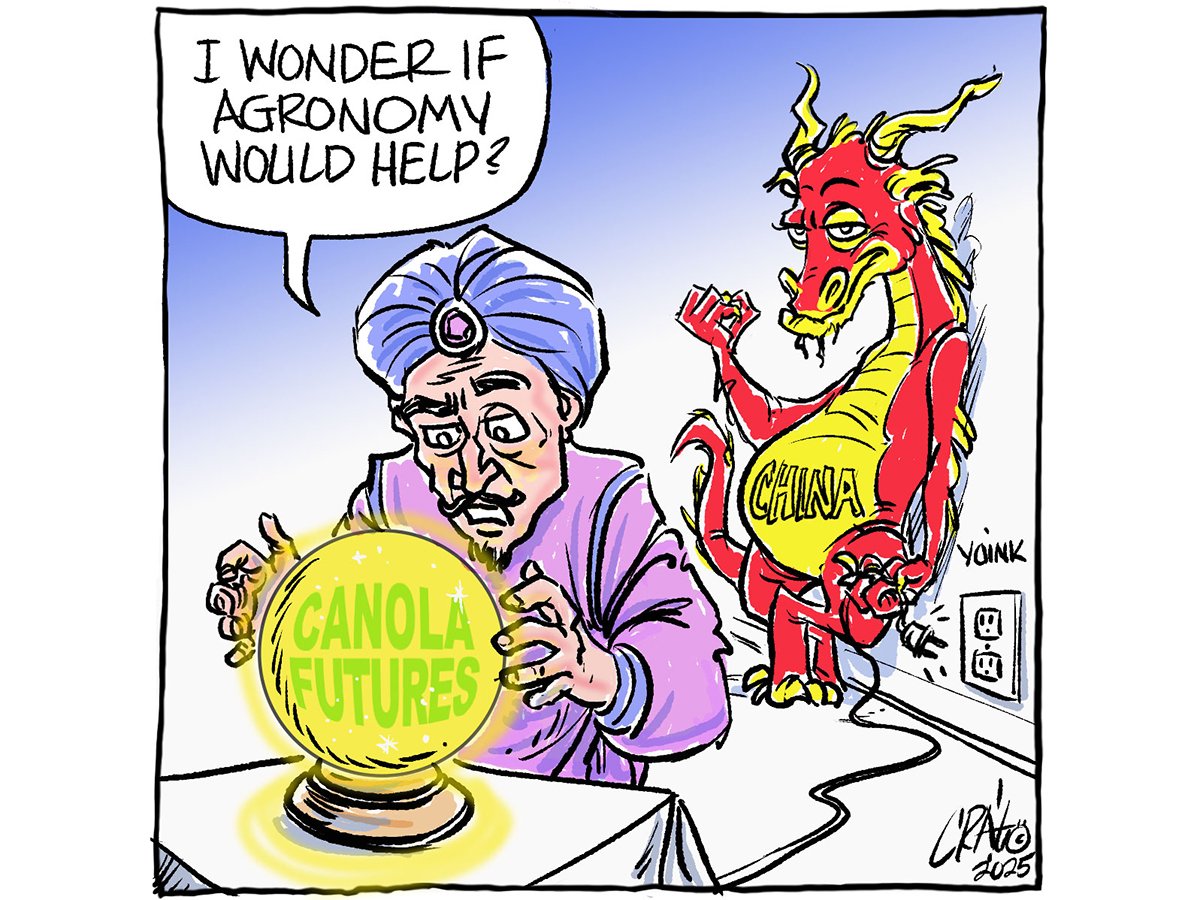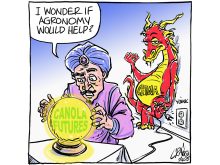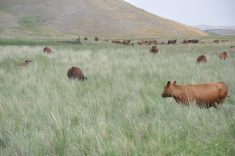Western Producer staff
For a 20-year veteran observer of the Crow wars, the most remarkable aspect of its latest manifestation is how the ground has shifted.
Saskatchewan agriculture minister Darrel Cunningham symbolizes that shift. Last week, he said the primary issue no longer is how the money is paid out. It is about how much money gets distributed.
The implication was that the method-of-payment debate has been won by the pay-the-farmer side. A decade ago, that comment would have been unthinkable for an NDP minister.
Read Also

Canola council agronomists had big impact on sector
The canola council’s new focus on markets will surely reap benefits, but growers will just need to be a bit more creative when looking for answers to their agronomy questions.
The party fought hard to keep the Crow as part of the “Confederation bargain” for the Prairies. Then, it fought to keep the Crow Benefit flowing to the railways. Now, the remark caused no uproar. That rumble in Saskatchewan is the sound of ground shifting.
Another illustration is the fact that last year, the Conservative government managed to convince some chickens to enter the fox den.
It lured such traditional pay-the-railways advocates as former Alberta Wheat Pool president Doug Livingstone and Quebec farm lobbyist Yvon Proulx onto a committee set up to design a pay-the-farmers system.
Last week, the committee recommended the Crow Benefit be paid out to farmers, gradually become a safety net, and be diluted as money is sent east, put into research or used for other purposes.
The recommendations outraged a cross-section of Prairie interests who complained the Crow Benefit is supposed to help Western Canadian grain producers, not eastern farmers.
They promised a fight if the Liberals try to implement the Producer Payment Panel recommendation as is.
Agriculture minister Ralph Goodale, Mr. Cautious, may heed their advice.
However, he would be on solid ground if he chose to challenge the validity of their arguments about the sacred nature of the subsidy as a Prairie institution.
For example, when successive Tory and Liberal governments cut $160 million from the $720-million pot in the name of spending controls, there was barely a whimper from Prairie farm groups about a sacred trust. They wanted to stay at the bargaining table. They chose not to take the government on.
How can farm groups now claim anything is sacred about the $560-million level as a benefit for Prairie farmers?
Those same groups also strongly supported an international trade deal which clearly called for restrictions on Canadian use of export subsidies. Now, one of the costs of the GATT “victory” is becoming clearer.
Goodale also can logically argue that there must be a pay-off for Eastern farmers in the reform package or it will be stymied by the same Quebec opposition that almost killed Crow reform in 1982-83. Where will he get the money? What would be wrong with dipping into the Crow Benefit pot?
After all, two governments already have gotten away with it without filling Prairie streets with protesters.
For farm groups, membership in the government partnership club has both its privileges and its price.
















